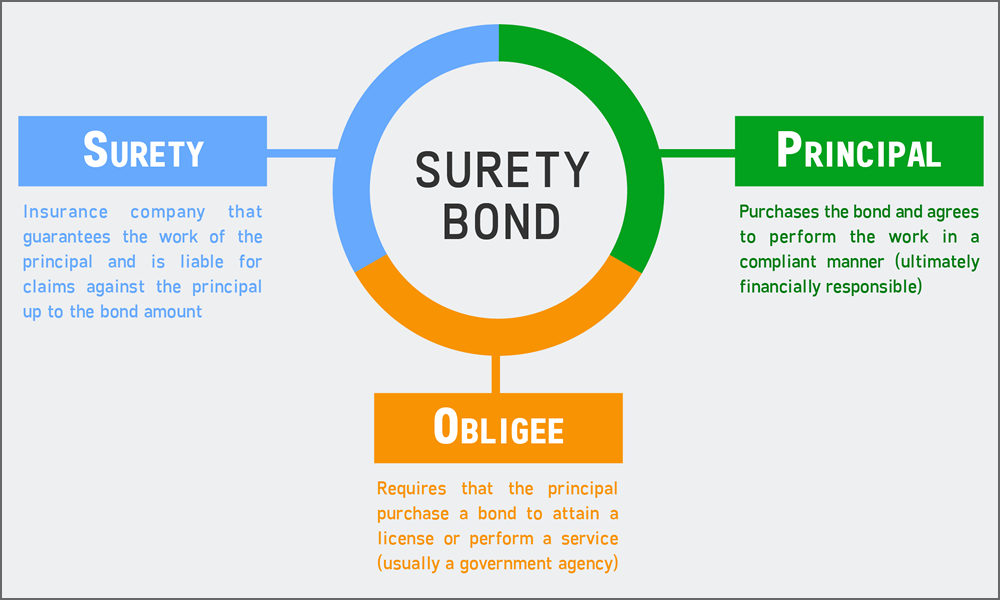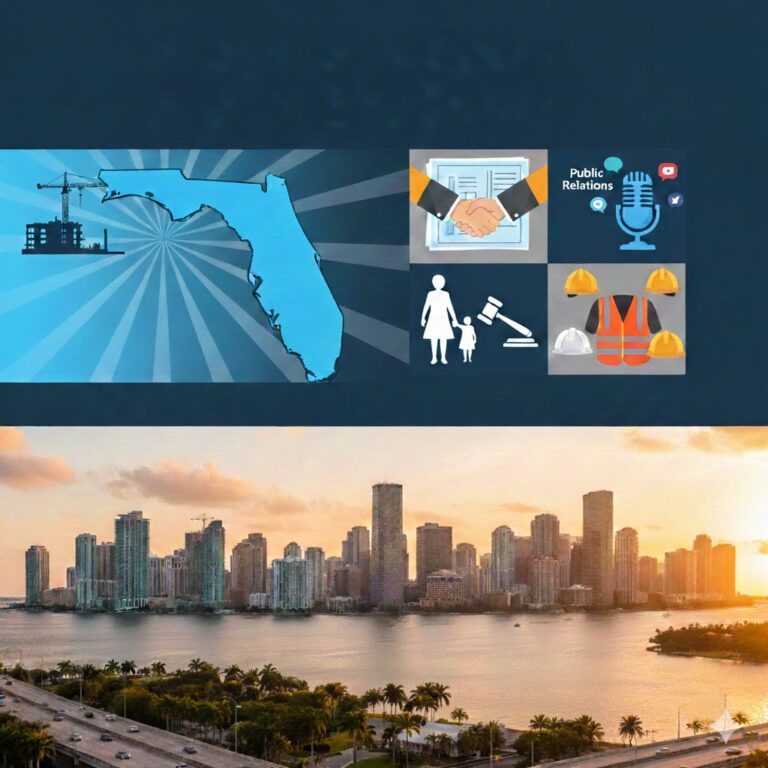
The Complete Guide to Construction Surety Bonds for Contractors
In the construction industry, financial security and contractual performance are paramount concerns for project owners, developers, and government agencies. When contractors undertake projects valued at hundreds of thousands or millions of dollars, stakeholders need assurance that work will be completed as promised, on schedule, and within budget. This critical need has made surety bonds an indispensable component of modern construction contracting. As one of the Top Central Florida surety bond providers, Guignard Company has helped countless contractors navigate the bonding landscape, securing the coverage they need to bid on competitive projects and grow their businesses strategically.
What Are Construction Surety Bonds and Why Do They Matter?
Construction surety bonds are legally binding three-party agreements that guarantee contractors will fulfill their contractual obligations on construction projects. Unlike traditional insurance policies that protect the policyholder from unforeseen risks, surety bonds protect the project owner (known as the obligee) by ensuring the contractor (the principal) performs according to contract terms. The surety company acts as the guarantor, providing financial backing and assuming responsibility if the contractor fails to meet their obligations.
The importance of construction bonds extends far beyond simple risk mitigation. For project owners, bonds provide financial recourse if contractors default, abandon projects, or fail to pay subcontractors and suppliers. For contractors, securing bonds demonstrates financial stability, operational competence, and professional credibility—qualities that distinguish serious firms from less qualified competitors. Government agencies particularly rely on bonding requirements to protect taxpayer investments and ensure public works projects reach successful completion.
As a top Tampa FL construction surety bid bond provider, Guignard and its construction surety bonding specialists understand that surety bonds serve as gatekeepers to lucrative opportunities. Many of the largest construction projects—including federal contracts, state infrastructure work, municipal developments, and major commercial buildings—require bonds as a prerequisite for bidding. Contractors without bonding capability simply cannot compete for these opportunities, making bond access a critical business asset.
The Three Primary Types of Construction Bonds
The construction bonding framework typically involves three interconnected bond types that work together to protect project stakeholders throughout the project lifecycle:
Bid Bonds: Ensuring Serious Competition
Bid bonds protect project owners during the competitive bidding process by guaranteeing that contractors who submit proposals will honor their commitments if selected. When contractors submit bids on bonded projects, the bid bond ensures they will enter into the contract at the proposed price and provide required performance and payment bonds if awarded the work.
The bid bond penalty amount typically ranges from 5% to 20% of the total bid value, as specified in the project’s bid documents. If a contractor wins the bid but refuses to sign the contract or cannot secure the required final bonds, the surety compensates the project owner for the cost difference between the winning bid and the next lowest qualified bid, up to the bond’s penalty limit.
For contractors seeking an Orlando surety bid bond provider, Guignard offers streamlined approval processes that enable quick turnaround times—essential when responding to bid opportunities with tight submission deadlines. Bid bonds cost relatively little compared to their face value, often just a few hundred dollars, because they present minimal risk for contractors who are genuinely qualified and committed to their proposals.
Performance Bonds: Guaranteeing Project Completion
Performance bonds form the centerpiece of construction surety protection. These bonds guarantee that contractors will complete their work according to plans, specifications, schedules, and contract terms. If contractors default—whether through abandonment, insolvency, quality failures, or other breaches—the surety company steps in to remedy the situation.
The surety has several options when addressing performance bond claims. They may provide financial assistance to help the original contractor complete the work, hire a replacement contractor to finish the project, allow the project owner to complete the work and reimburse reasonable costs, or negotiate a cash settlement compensating the owner for losses within the bond amount.
Performance bonds are typically written for 100% of the contract value and remain in effect throughout the construction period. On federal projects exceeding $150,000, the Miller Act mandates performance bonds, while state “Little Miller Acts” impose similar requirements on state and local public works with varying threshold amounts.
Payment Bonds: Protecting Subcontractors and Suppliers
Payment bonds work alongside performance bonds to ensure contractors pay all subcontractors, material suppliers, and laborers involved in bonded projects. These bonds provide critical protection for downstream parties who supply labor or materials but lack direct contractual relationships with project owners.
Without payment bonds, unpaid subcontractors and suppliers would typically file mechanics liens against project properties to secure payment. However, government properties cannot be liened, making payment bonds essential on public works. Even on private projects, payment bonds offer advantages by preventing lien complications and ensuring equitable treatment throughout the supply chain.
Payment bonds are also typically written for 100% of the contract value and allow qualifying parties to file claims directly against the bond if the general contractor fails to pay for work performed or materials provided. The Miller Act and state equivalents establish specific procedures and timeframes for filing payment bond claims on public projects.
Understanding the Surety Bond Underwriting Process
Securing construction bonds requires contractors to undergo a thorough underwriting evaluation. Surety companies assess what the industry calls the “Three C’s”—character, capacity, and capital—to determine bonding eligibility and establish appropriate capacity limits.
Character Assessment: Sureties investigate contractor reputations, business histories, and track records of completing projects successfully. They examine past performance on bonded work, relationships with subcontractors and suppliers, litigation history, licensing status, and professional references. Contractors with clean records and positive industry reputations receive preferential consideration and better bonding terms.
Capacity Evaluation: This component addresses the contractor’s technical and operational ability to execute proposed work. Sureties assess experience with similar projects in terms of size, complexity, and type; workforce depth and capabilities; equipment resources and availability; current backlog and commitments; and management systems for project controls. A contractor might have strong financials but lack capacity if the proposed work falls outside their demonstrated expertise.
Capital Review: Financial strength represents perhaps the most critical underwriting factor. Sureties conduct detailed financial analysis examining balance sheets, income statements, cash flow statements, working capital calculations, debt-to-equity ratios, profitability trends, and overall financial stability. They look for adequate working capital to finance operations, consistent profitability demonstrating business viability, manageable debt levels relative to equity, and sufficient net worth to absorb potential project losses.
The underwriting process typically requires contractors to submit three years of financial statements (preferably audited or reviewed by CPAs), current work-in-progress schedules detailing all ongoing projects, business and personal financial statements for company principals, banking and trade references, project resumes demonstrating relevant experience, and corporate documentation including articles of incorporation and operating agreements.
Bonding Capacity: Understanding Your Limits and Growing Strategically
Bonding capacity represents the maximum amount of work a contractor can have bonded simultaneously. This concept differs from single project limits and encompasses the aggregate value of all bonded projects in progress at any given time. Understanding and managing bonding capacity is crucial for contractors pursuing growth in bonded work.
Surety companies calculate bonding capacity based primarily on contractor working capital and net worth, typically using multipliers ranging from 10 to 20 times working capital, depending on the contractor’s track record and financial strength. For example, a contractor with $1 million in working capital might receive aggregate bonding capacity of $10 million to $15 million. Within that aggregate, single project limits might range from $2 million to $4 million, depending on the contractor’s experience with projects of various sizes.
As contractors successfully complete bonded projects and strengthen their financial positions, bonding capacity grows. This growth enables contractors to pursue larger individual projects and take on more work simultaneously. Strategic capacity expansion requires maintaining strong working capital through profitable operations, limiting owner distributions to sustainable levels, managing debt conservatively, building retained earnings over time, and demonstrating consistent success on increasingly larger projects.
Guignard works with contractors to develop long-term bonding strategies that support systematic capacity growth. By understanding your business goals and helping you present qualifications optimally to surety markets, we facilitate capacity increases that align with your growth trajectory.
The Cost Structure of Construction Bonds
Construction bond premiums vary based on numerous factors but generally represent a small percentage of contract values—typically 0.5% to 3% for qualified contractors. Several variables influence premium rates:
Contractor Credentials: Contractors with strong financials, proven track records, and extensive relevant experience command the lowest premiums. Those with limited histories, weaker financial profiles, or experience gaps pay higher rates reflecting increased perceived risk.
Project Characteristics: Certain project types carry different risk profiles affecting premiums. Straightforward projects like site work or simple building construction generally receive better rates than complex projects involving specialized systems, design-build arrangements, or innovative construction methods.
Contract Size: Larger projects often benefit from volume discounts, with premium rates declining as contract values increase. The same contractor might pay 1.5% on a $500,000 project but only 0.75% on a $5 million project.
Contract Terms: Risk-shifting provisions in construction contracts can impact premiums. Unfavorable payment terms, restrictive change order procedures, aggressive schedule requirements, or unusual liability assumptions may increase bond costs.
Bonding History: First-time bond applicants typically pay higher premiums than contractors with established bonding programs and successful completion records. As contractors build bonding histories, premiums generally decrease.
For practical illustration, consider a $3 million commercial construction project. A contractor with excellent credentials might pay $22,500 in combined performance and payment bond premium (0.75% rate), while a contractor with moderate qualifications might pay $60,000 (2.0% rate). These costs are typically included in contractor bids as part of general conditions, ultimately borne by project owners through the contract price.
Public Works Bonding Requirements: What Contractors Must Know
Public construction projects have specific bonding requirements established by federal and state legislation:
Federal Projects and the Miller Act: The Miller Act governs bonding on federal construction contracts exceeding $150,000. This legislation requires contractors to provide performance bonds for 100% of the contract value and payment bonds for 100% of the contract value before beginning work. The Act also stipulates that sureties must appear on the U.S. Department of the Treasury’s list of approved sureties (the “T-List”) and establishes specific procedures and timeframes for payment bond claims.
State Little Miller Acts: Every state has enacted its own version of the Miller Act applying to state and local government projects. These laws vary in threshold amounts triggering bond requirements (commonly ranging from $25,000 to $100,000), specific bond form requirements, claim procedures and deadlines, and surety qualifications. Contractors pursuing public works must understand requirements in their specific jurisdictions.
Certification and Compliance: Public works bonds often require specific certifications regarding prevailing wages, equal employment opportunity compliance, disadvantaged business participation, and other regulatory requirements. Contractors must ensure their bonds include all required certifications and endorsements.
Common Challenges in Obtaining Bonds and How to Overcome Them
Contractors occasionally encounter obstacles in the bonding process. Understanding these challenges and addressing them proactively improves success rates:
Limited Financial Strength: Contractors with insufficient working capital, high debt loads, or inconsistent profitability struggle to obtain bonds or face capacity restrictions. Solutions include strengthening financial positions before pursuing bonded work, limiting owner draws to preserve working capital, restructuring debt to improve balance sheets, and focusing on profitable operations that build retained earnings.
Lack of Relevant Experience: Contractors attempting to pursue work outside their demonstrated experience areas face surety skepticism. Overcoming this requires documenting all relevant experience, including work performed for other companies, starting with smaller bonded projects to establish track records, partnering with experienced firms on initial projects, and clearly articulating how existing capabilities transfer to new project types.
Current Capacity Constraints: Contractors who have maximized existing bonding capacity cannot obtain additional bonds for new opportunities. Managing this requires completing existing projects to free capacity, requesting temporary capacity increases for specific opportunities, working with agents to access alternative surety markets offering additional capacity, and strategically timing new project pursuits.
Past Performance Issues: Contractors with histories of project problems, claims, or defaults face difficulty obtaining bonds from new sureties. Rehabilitation requires time but involves demonstrating reformed practices through successful recent projects, providing detailed explanations of past issues and corrective actions taken, offering additional collateral or guarantees to reduce surety risk, and working with surety specialists experienced in challenging placements.
The Advantages of Working with Experienced Surety Bond Agents
While contractors can approach surety companies directly, partnering with experienced surety bond agents offers significant benefits:
Broad Market Access: As a bid bond provider in Atlanta, GA, and throughout the Southeast, Guignard maintains relationships with over 20 surety companies ranging from large national carriers to regional specialists. This breadth allows matching contractors with sureties best suited to their specific situations and project types.
Skilled Advocacy: Guignard’s experienced surety bond agents present contractor qualifications in the strongest possible light, helping sureties understand capabilities and differentiators. When challenges arise, agents advocate on contractors’ behalf to find workable solutions.
Process Efficiency: Experienced agents know exactly what information each surety requires and how to present it most effectively. This streamlines applications and accelerates approvals—critical when responding to bid opportunities with tight deadlines.
Strategic Guidance: Beyond individual bond placements, agents help contractors develop long-term bonding strategies supporting growth objectives. This includes financial management advice, project selection guidance, capacity expansion planning, and surety relationship diversification.
Problem Resolution: When project issues arise or surety relationships encounter difficulties, agents provide valuable intermediary services, facilitating communication and developing resolution strategies that protect all parties’ interests.
Building Strong, Long-Term Surety Relationships
The contractor-surety relationship functions best as a long-term partnership built on transparency and mutual success. Contractors should implement several practices to maintain strong bonding relationships:
Proactive Communication: Inform your surety promptly about project challenges, financial changes, or business developments. Sureties appreciate transparency and can often provide guidance or resources before problems escalate. Hiding difficulties until they become crises damages relationships and limits resolution options.
Timely Financial Reporting: Submit financial statements according to agreed schedules, typically annually for audited or reviewed statements and quarterly for internal financials. Prompt reporting demonstrates professionalism and allows sureties to monitor financial health.
Conservative Growth Management: Avoid overextending capacity by taking on excessive work or pursuing projects beyond your experience level. Sustainable, controlled growth builds surety confidence and supports capacity increases over time.
Strong Project Controls: Implement robust project management systems, including accurate job costing, regular work-in-progress reviews, formal change order procedures, proactive scheduling, and quality control programs. Strong controls prevent problems and demonstrate professional project management.
Financial Discipline: Maintain adequate working capital by limiting distributions, managing debt conservatively, avoiding unnecessary equipment purchases, and building retained earnings. Financial strength forms the foundation of bonding capacity.
Specialty Bonds Beyond Basic Construction Coverage
Beyond standard bid, performance, and payment bonds, contractors may encounter requirements for various specialty bonds:
Subdivision and Site Improvement Bonds: Guarantee completion of infrastructure improvements in residential developments, including roads, utilities, drainage systems, and common areas.
Maintenance and Warranty Bonds: Guarantee contractor obligations during post-completion warranty periods, typically one to two years, ensuring repairs or corrections of defective work.
Supply Bonds: Ensure material suppliers fulfill delivery obligations for projects where materials constitute major contract components.
License and Permit Bonds: Meet state and local requirements for contractor licensing, demonstrating financial responsibility as a condition of license issuance.
Court and Litigation Bonds: Required in various legal proceedings, including mechanic’s lien release bonds, appeal bonds, and injunction bonds.
How Guignard Company Supports Contractor Success
Guignard Company differentiates itself through personalized service, deep market relationships, and genuine commitment to contractor success. Our bond professionals average over 15 years of industry experience and understand the unique challenges facing contractors in various sectors—from commercial building and heavy civil work to specialty trades and design-build projects.
We work with contractors at all stages of development, from those seeking their first bonds to established firms pursuing eight-figure projects. Our approach emphasizes understanding your business goals, presenting your qualifications optimally, accessing appropriate surety markets, and providing ongoing support as your bonding needs evolve.
As a trusted Tampa Bay FL performance bond provider, we recognize that every contractor’s situation is unique. We take time to understand your specific circumstances, capabilities, and objectives, then develop bonding strategies tailored to your needs. Whether you need a single bid bond for an immediate opportunity or a comprehensive bonding program development to support multi-year growth plans, our expertise and market access deliver results.
Contact Guignard Company for Your Construction Bond Needs
Whether you’re a contractor seeking your first bonds or an established firm looking to expand bonding capacity, Guignard Company provides the expertise and market access necessary to support your goals. Our commitment to responsive service means you receive the attention and guidance required to navigate the bonding process successfully.
Orlando Office
1904 Boothe Circle
Longwood, FL 32750
Phone: 407-834-0022
Serving contractors throughout Central Florida with comprehensive bonding solutions for commercial construction, public works, and specialty projects.
Tampa Office
1219 Millennium Pkwy, Ste 113
Brandon, FL 33511
Phone: 813-547-3773
Supporting Tampa Bay area contractors with expert guidance on performance bonds, payment bonds, and bonding capacity development.
Atlanta Office
Deerfield Corporate Center One
13010 Morris Rd, Ste 600
Alpharetta, GA 30004
Phone: 678-606-5533
Assisting Georgia contractors with surety bond solutions for projects throughout the Atlanta metropolitan area and Southeast region.
Construction surety bonds represent essential tools for contractors pursuing growth in competitive markets. Understanding bond types, underwriting processes, and best practices for maintaining strong surety relationships positions contractors for long-term success. The bonding landscape can seem complex, but with proper guidance and strategic planning, contractors can access the bonding capacity needed to pursue increasingly profitable opportunities.
Guignard’s experienced professionals stand ready to guide you through every aspect of construction bonding. Our relationships with leading surety companies, combined with our commitment to personalized service, ensure you receive competitive terms and responsive support when opportunities arise. Contact us today to discuss your bonding needs and discover how our expertise can help elevate your construction business to new levels of success.



